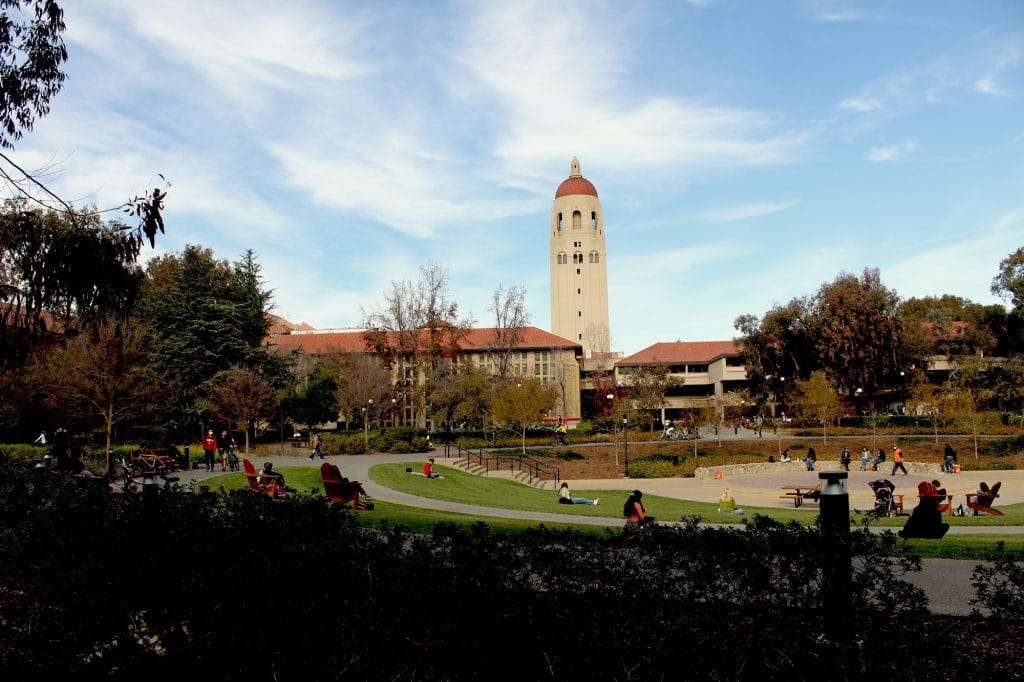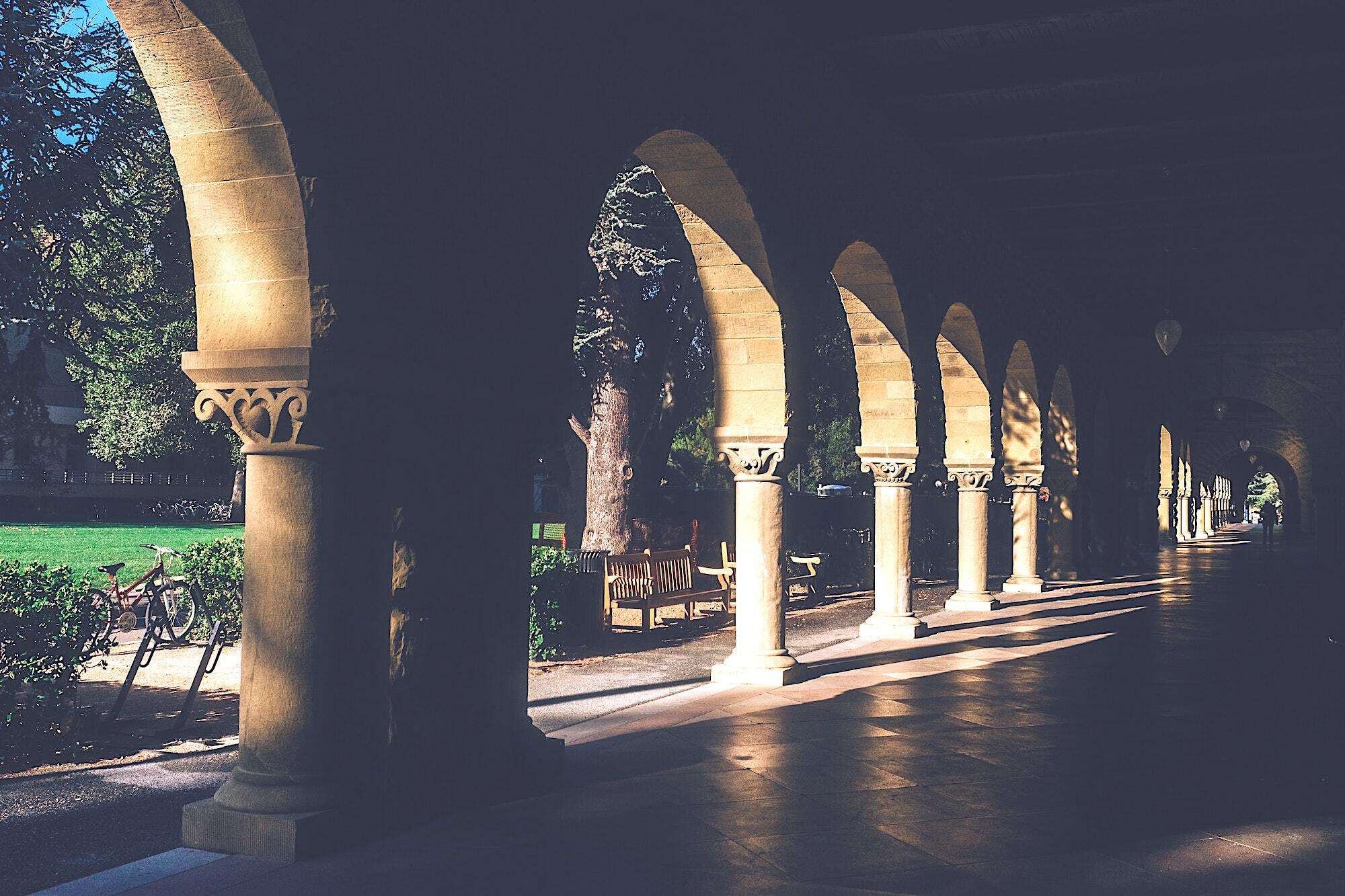The Stanford Doerr School of Sustainability is set to open in the fall, following the largest gift in the university’s history—$1.1 billion from John and Ann Doerr.
Stanford University says the large gift will be used to extend the university’s scholarships and amplify its efforts in tackling the climate crisis.
“Stanford is making a bold, actionable, and enduring commitment to tackle humanity’s greatest challenge, and we have deep conviction in its ambition and abilities,” John and Ann Doerr said in a statement.
“We believe the Stanford Doerr School of Sustainability will be a model for the interdisciplinary collaboration required to solve this existential challenge – and set a new standard for scholarship in the 21st century,” the couple said.
Stanford and the Doerrs say the use of “sustainability” in the new school name is intentional; it signifies the urgent need for solutions to the ongoing climate crisis. It will focus on three key areas: Earth, Climate, and Society.

Arun Majumdar will serve as the inaugural dean for the Doerr school. Majumdar is the Jay Precourt Professor, professor of mechanical engineering, and senior fellow and former co-director of the Precourt Institute for Energy.
“The Stanford Doerr School of Sustainability will not only harness the intellectual horsepower of our students, faculty, and staff across our campus, but also partner with external organizations around the world to co-develop innovative solutions and identify new insights through research and education,” said Majumdar.
“As is often said, we do not inherit the Earth from our ancestors, we borrow it from our children. We must create a future in which humans and nature thrive together.”
Stanford’s sustainability commitment
The Stanford Doerr School of Sustainability is expected to reflect the Stanford community’s “deep ambition to lead in this domain, building on the university’s decades of foundational work,” the school says. “Hundreds of people in the Stanford community contributed ideas, participated in town halls, worked on committees, and responded to surveys that led to the creation of this school.”
The new school will feature academic departments as well as interdisciplinary institutes, and an accelerator focused on developing near-term and tech solutions. John Doerr hails from the tech industry, having started his career with Intel before becoming chair at Kleiner Perkins. He is also the author of Measure What Matters and Speed & Scale: An Action Plan for Solving Our Climate Crisis Now.
Ann Doerr is the chair of Khan Academy and former board member and current advisory board member of the Environmental Defense Fund, and former trustee of Rice University She has served as a member of Stanford Medicine’s Cancer Council and Under One Umbrella Steering Committee.

“These gifts will help Stanford bring its full effort to bear on solving the most complex problems in climate and sustainability, and on training the next generation of students who are eager and driven to address these challenges,” Stanford President Marc Tessier-Lavigne said.
“We have designed a school for the future combining knowledge generation and impact, building on the strong foundation established through Stanford’s history of scholarship in Stanford Earth and our other schools and interdisciplinary institutes. We are deeply grateful to John and Ann for partnering with us to realize the school’s mission, as well as to the other generous lead donors who are leveraging their resources to help us create a more livable future.”
Building a sustainable future
The funding will see about 90 existing faculty and an additional 60 over the next decade to support the scholarship. Existing faculty come from the School of Earth, Energy, and Environmental Sciences, with new hires focused on climate science, sustainable development, and environmental justice.
The interdisciplinary institutes will bridge across departments with the existing Stanford Woods Institute for the Environment and the Precourt Institute for Energy becoming part of the school.
The accelerator will work with high potential technologies by providing laboratories, tools, and domain expertise to support researchers and scale prototypes. It will also help with policy design and work with external stakeholders.
Students across campus, regardless of their area of study, will be able to participate in the school’s curriculum, as well as its research, training, and projects, the university says.

The funding will increase financial opportunities for graduate students and postdoctorate fellows, and support new initiatives for key areas of study in energy, behavior, and communications, as well as the key hires, Stanford says.
“Growing our faculty is critical as we are creating wholly new departments, expanding areas of scholarship, and ensuring that diverse voices and experiences are informing our scholarship,” said Provost Persis Drell. “I’m tremendously grateful to Akiko and Jerry for enabling us to move quickly on our ambitious hiring goal, which will be essential to addressing the full gamut of climate and sustainability challenges.”
Additional investments were made by alumni including Jerry Yang, ’90, MS ’90, and Akiko Yamazaki, ’90; David, MS ’90, and Angela Filo, ’93, among others.
“Today’s real and pressing challenges—not least, solving our climate crisis—require that knowledge be channeled toward the building of practical, implementable solutions,” the Doerrs said.
“With a deep track record in groundbreaking scholarship and impact, and a critical mass of subject experts and innovators, Stanford is perfectly positioned to make a measurable difference in climate and sustainability challenges. This is the decisive decade, and we must act with full speed and scale.”


